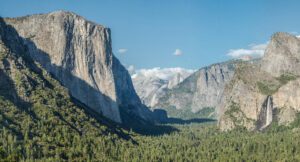Jacquie Des Rosiers, New Ontario Crusher
Jacquie Des Rosier is a story of a late start, unquenchable psych, difficult bouldering, and the managing of risk built out of training
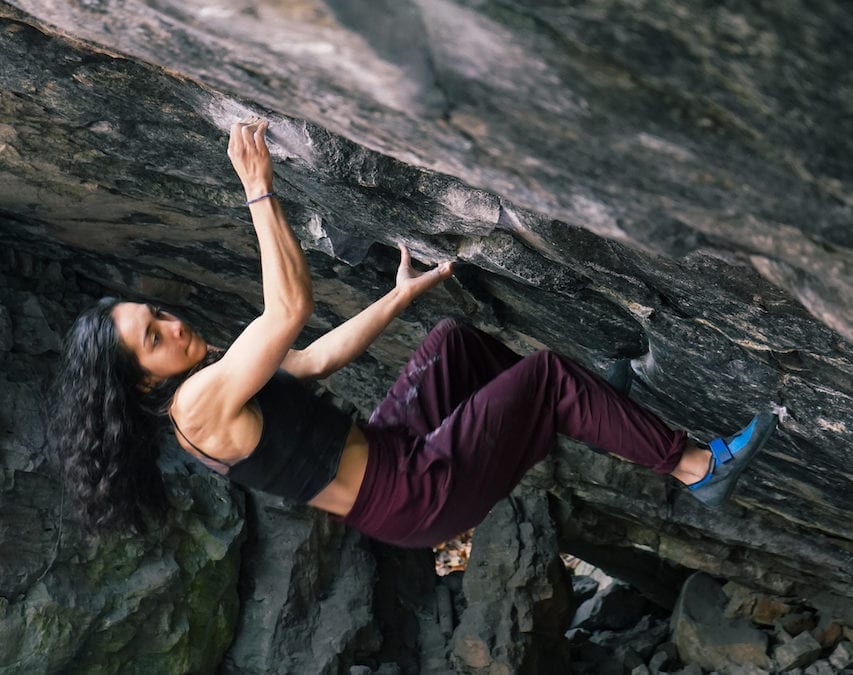
Jacquie Des Rosiers is a new name in Canadian Rock Climbing. She is 21-year-old boulderer with a general ambivalence for competition, and a single-minded project-based determination that has built her into one of the most promising young climbers of 2020.
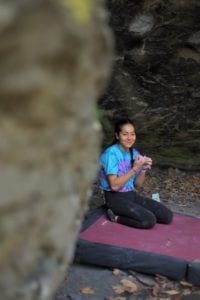
Perhaps what is most notable about Des Rosiers is her entrance to the sport. It is remarkably normal. Climbing media is so often defined by those and their immediate rise to power. One year goes by and they are competing at nationals. Two years, and they are at Arco, or establishing double digit boulder problems in their local areas. This is radical but difficult to relate to the average climber. Quickly, we write them off as freaks of nature whom we could never replicate. Here, this is not the case.
Des Rosier “climbed” for three years before she ever took it seriously as a sport. How many of us spent time around the same plateau because we didn’t know what exactly we wanted from the multifaceted discipline that is rock climbing? How many of us simply began climbing because the gym was a rad place to hang out?
For Des Rosier, “What attracted me to the sport in the beginning was the environment of the climbing gym. I loved the staff, I loved the people, I always looked forward to going to the gym, and I didn’t really know why. I loved climbing with my friend, we had a really good chats while we were climbing, so it was never really about the climbing in itself.”
It wouldn’t be until 2017 that Des Rosiers would move some classes around in order to take work as desk staff at the Rock Oasis. “I started to really get consistent with it when I started working there. I had to take up bouldering instead of Top Roping because the friend I started climbing with left for university. I started climbing by myself and I started to see myself improve really slowly.”
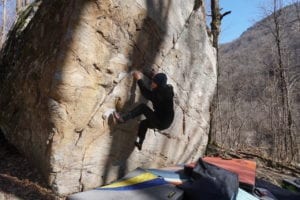
“I got really into it the year after because I was invited to go to Alberta with my coworkers for a climbing trip. It was going to be my first-time outdoor climbing, and a lot of my friends that were going on the trip with me started training for it. I got psyched on training, and then I started to see improvements in my climbing.”
Over the course of those few years, Des Rosiers would steadily improve, working in various training regimes from board climbing to hangboard, to weighted pull-ups to core. As lockdown loomed in the Spring of 2020, Des Rosiers would find herself at the top of a couple challenging boulders, but with a feeling that climbing would, forever, feel difficult.
“Quarantine really changed my outlook on training. Prior to quarantine, I trained, but it was a lot less focused. When I would go to the gym I would be socializing with people and not actually making it through my training.”
“Quarantine taught me to be more focused. Because I was locked down I had nothing to distract me. I got through my sets, got through my reps, and I started to see a lot of progress in that way. I also didn’t really believe that the training I was doing would really help my climbing, but, being stuck by myself for so many months, and then going outside really changed the way I looked at training because I saw the results of training. Before quarantine, I had climbed a few V9s, but I had never felt actually strong and I had just thought that climbing would always feel hard.”
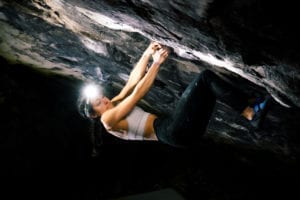
Upon returning to the Glen, Des Rosiers would begin to notice the effects of all her training. “I think that I realized that I had potential to be strong. All of these climbs that had felt so impossible in the past felt close. I didn’t really believe that I could progress for some reason, but I think that first session back really changed my mind. I got psyched on my progression and became even more motivated to keep pushing it from that point on.”
Upon her return to the Niagara Glen, Des Rosier would see a number of projects fall. Though at first these boulders reflected her crimping style (Boulders such as Closed Eye Visuals and PeeWee), she would quickly begin to take down problems that had stumped her in the past. The Glen’s ultra-classic Black Eagle favours the longer-limbed climber, and, at 5’2”, Des Rosier had long struggled to latch the bat-hang toe-hooks that make it possible to negotiate the final roof section. This portion of the climb became her crux.
After Quarantine, Des Rosiers would fire the line, and, in that same day, achieve the first female ascent of the V10 left start: Metamorphosis. Of this fact, Des Rosiers would make no mention. She was simply excited to have achieved her first double-digit boulder problem. These ascents would mark a breakthrough for Des Rosiers and would begin her progression through progressively heavier hangs, further firsts and other difficult boulder problems.
Though Des Rosiers was very much enjoying her progression in the sport, she noted that training over Quarantine had multiple effects upon her body. Though she would become wildly strong, she dropped weight at a fast rate.
She said, “I started to pay quite a bit of attention to my weight last year, especially during quarantine. I started to see improvements in my training, but I thought that I was only seeing improvements in my training because I was losing weight.”
Des Rosier notes that though she was not restricting her calories, she did enjoy the feeling of progression that she felt was a function of weight loss. “I didn’t experience any issues with it for a long time, but then I ended up losing my period. I knew that wasn’t a good thing because girls have to have their period for their body to function the best it can. When you are an athlete you care about your health and you want to be as healthy as possible so that you can perform well. Not having your period affects your bone density, and a ton of things, and you have to have healthy bones to gain muscle.”
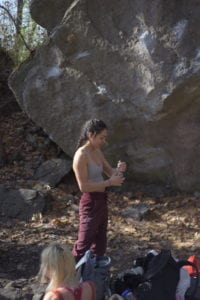
“For a long time I went in between ‘Do I want to go about training sustainably or just like send all of my projects now and get really light and just keep performing.’ Obviously the latter is not the best way to go so I knew I had to learn more about how to fuel myself for climbing. I had to learn to not be afraid of gaining a bit of weight for my health.”
“It was scary going into it because I thought that I would put on a bunch of weight and be bad at climbing again. I say ‘again’ because I still do find myself relating climbing ability to weight. It is still something I am trying to disconnect because I don’t think it is that related. It is all about your strength-to-weight ratio. You can improve your strength and improve your climbing,” without having to cut additional weight.
“This topic is still new to me. I actually didn’t know you could lose your period from overtraining and undereating until pretty recently, but then I started to hear about how a lot of female athletes lose their period and are told that it’s okay and to just keep going, but I think that is wrong because loss of a period is not normal at all and it is usually because you are deficient in nutrients or undereating. It is not something to be ignored. It should be addressed.”
Fortunately for Des Rosiers, these disordered thoughts would not grow into a fully-fledged eating disorder, though her experience shows the proclivity climbers have for those things we believe can make us stronger. Instead, Des Rosiers spent time learning about nutrition and returned to training in a healthier manner. As such, her Summer season that ended with such strength continued into the Autumn. Des Rosiers would tick both BFF and nail the rarely repeated high-ball Old Man Gloom.
Despite what many might consider a slow start to climbing, these last eight months have shown the significance of dedication in the pursuit of ability. Though there are dangers to pushing yourself hard, they are mitigated with a greater education of nutrition and training and are supplemented by a goal. Today, Des Rosier is pushing her maximum on 6 mm weighted hangs, weighted one-arm hangs, one-rm pull ups, and front levers. It will be exciting to see what the Southern-Ontario local busts out in the new, post-lockdown, season.
Featured Image of Des Rosiers on Metamorphosis Low by Ilya Sarossy.
